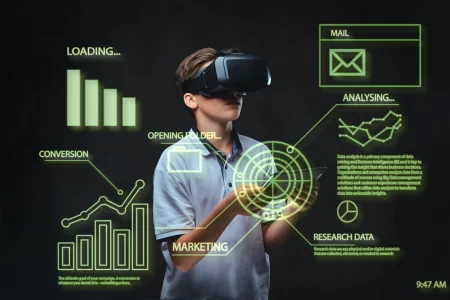 The marketing industry is continuously changing, and the most recent frontier is virtual reality (VR).
The marketing industry is continuously changing, and the most recent frontier is virtual reality (VR).
Businesses are realizing the great potential of VR in engaging and capturing audiences as technology develops.
Take a look at the intriguing prospects of merging SEO methods into virtual reality experiences and how they might transform marketing.
Understanding the Growing Popularity of Virtual Reality
Because of its potential to create immersive and interactive settings, virtual reality has grown in popularity in recent years. VR has captured the imagination of users all around the world, from gaming and entertainment to education and training. Businesses are realizing the possibility of reaching consumers within these virtual realms as the usage of VR headgear and devices grows.
SEO and Virtual Reality Intersection
The VR experience can benefit from optimization efforts in the same way that traditional websites and online platforms rely on SEO techniques to boost visibility and rankings.
Businesses may improve their discoverability and attract a larger audience by optimizing VR content for search engines.
Keyword optimization within VR settings, meta descriptions for VR experiences, and developing high-quality VR content that attracts and engages people are all examples of this.
VR User Experience Enhancement
User experience (UX) is critical in VR marketing. Businesses may improve the overall user experience in VR settings by using efficient SEO techniques.
This can include decreasing latency, optimizing load times, and guaranteeing smooth navigation inside the virtual area.
Furthermore, customizing VR content for multiple devices and platforms can contribute to a more seamless and engaging user experience, leading to higher engagement and conversion rates.
Data-driven Insights and VR Analytics
The availability of data and analytics is a big advantage of implementing SEO into VR marketing. Businesses can acquire significant insights into user behavior, preferences, and interactions within virtual worlds by employing VR analytics solutions.
This information can help advertisers enhance their VR content, adjust it to specific user segments, and offer more personalized experiences. In VR marketing, data-driven decision-making can greatly boost campaign performance and ROI.
Virtual reality is an intriguing new area for marketers, providing consumers with immersive and fascinating experiences. As VR technology advances, marketers must investigate and capitalize on the tremendous potential of this immersive medium.
Picture Credit: Freepik
